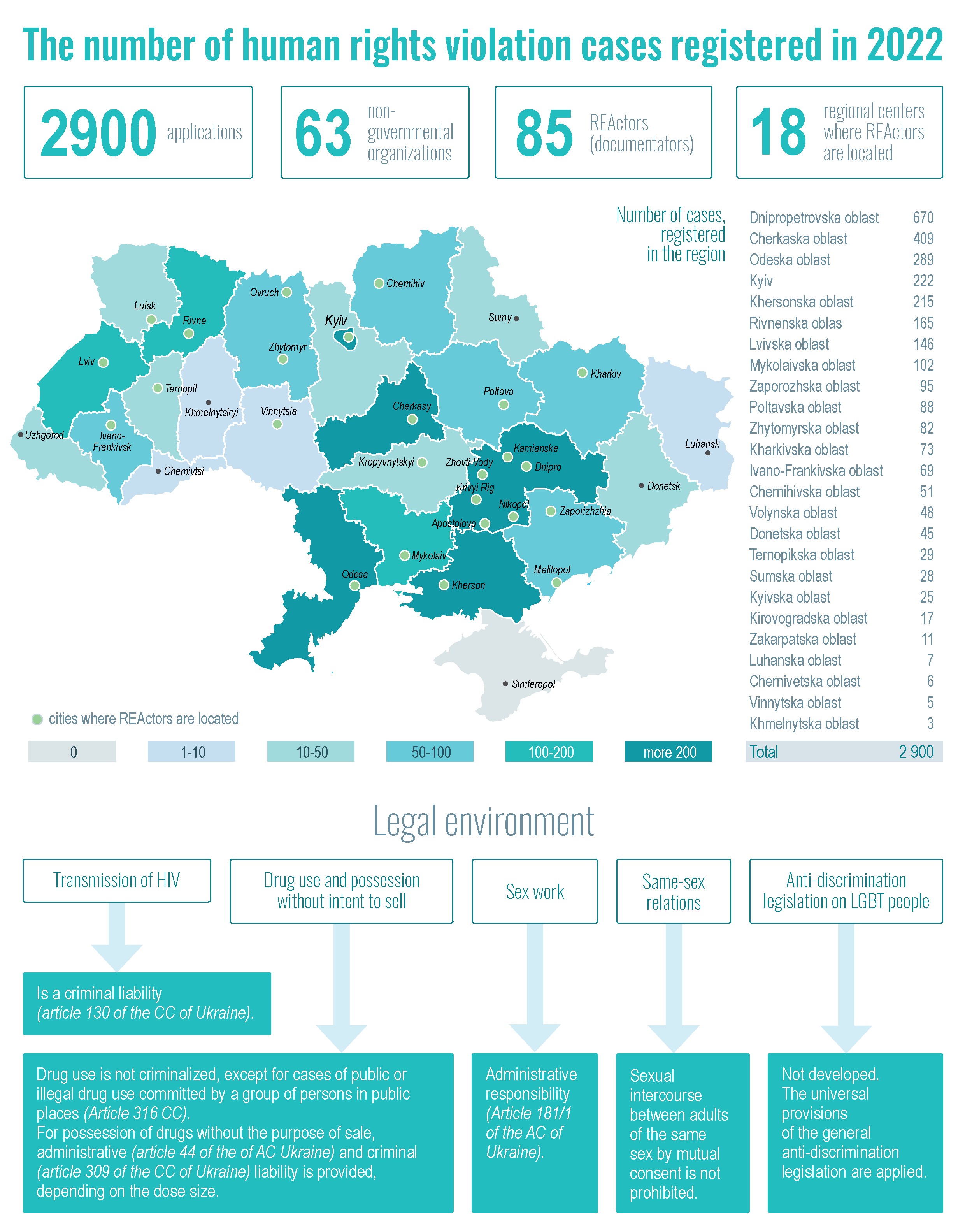Ukraine

BACKGROUND
Stigma and discriminatory attitudes towards representatives of key groups are widespread in society. The situation in Ukraine regarding the observance of their rights is unsatisfactory. Although the risks of criminal prosecution under article 130 of the CC “Infection with HIV or another incurable infectious disease” are insignificant in practice, people living with HIV are stigmatized in everyday contact.
Formally, drug use in Ukraine is not criminalized, with the exception of cases of public or committed by a group of people using drugs in public places. However, since both administrative and criminal liability is provided for the possession of drugs without the purpose of sale, depending on the volume of the drug, and drug addicts have to store them in order to be able to use them, in practice, they are actively pursued by the police, in fact, for their state of dependence. At the same time, the limits on the number of drugs followed by prosecution are very low, which can lead to situations where, in the presence of a single dose of the drug, individuals face criminal punishment.
Sex workers are often harassed by the police, for whom the existence of administrative liability for engaging in sex work is the basis for harassment with impunity.
Sexual contact between consenting adults of the same sex is not prohibited by law, but MSM often face stigma and discrimination based on sexual orientation.
Ukraine has the Law “On the Fundamentals of Preventing and Combating Discrimination in Ukraine”. The list of inadmissible grounds of discrimination does not expressly mention sexual orientation and gender identity, although they formally fall under this definition.
The rights of trans* people in Ukraine are often violated, and they themselves experience persistent stigma and discrimination.
IMPLEMENTERS
The REAct system has been implemented in Ukraine since 2019.
Cases are documented by 63 non-governmental organizations operating in 18 regions of the country.
ICF “Alliance for Public Health” provides technical support for database maintenance, analysis of collected information, and formation of strategic goals for advocacy.
REActors
63 non-governmental organizations (NGOs) are involved in documenting cases of violation of the rights of key communities vulnerable to HIV/TB in 18 regions. REActors (documentator) of the Project are NGO employees who have direct contact with vulnerable groups. Basically, these are social workers, project coordinators, specialists, documentators of prevention projects, lawyers, and others.
Each REActor works in his/her own direction with the corresponding risk groups.




